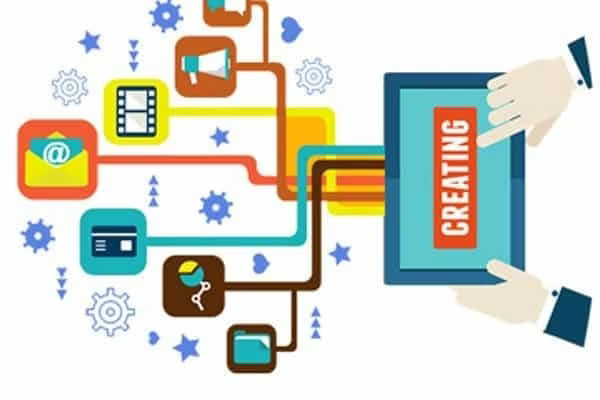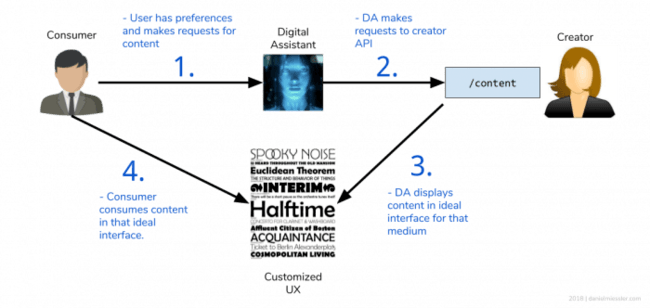The Future of Content Destroys the Middleman

I think the content creation ecosystem—especially around blogging—will be ultimately disrupted by the rise of three interlocking componets:
Digital Assistants
APIs
Customized interfaces
Google Duplex just gave us a preview of how natural it’ll soon be to interact with assistants.
This is currently quite different. There is no Digital Assistant yet, and content and interface are currently merged into websites. Additionally, search is also split between search engines and the various search capabilities of the sites themselves.
This is great for companies like Google and Medium because they’re in the middle. They didn’t create the content, and they’re not consuming it. They’re just pulling it from the source, and handing it to whoever needs it.
This goes away when you break the process into its components.
Digital Assistants will understand what we want to see, and they’ll be able to process our requests—whether voice, typed, or gestured. They will then ask for the content from a myriad of sources. The content will be returned not as a primitive list of links to be read by a human, but as a massive set of computer-readable options.
In my book, The Real Internet of Things, I talked about this at length:
So instead of interacting with technology directly, we will interact with our DA, and our DA will work out the details with the necessary daemon. We speak, things happen. We gesture, things happen. We text, things happen.
From there the DA will show it to you in the best possible interface, which will be different for pure text content, video content, etc., and all that will depend on what you’re currently doing, where you are, who you’re with, etc.
The Digital Assistant will find the best content that matches with your request and then find the best interface within which to display it to you.

The key point here is that the search engine as a GUI is now gone, or at least abstracted behind another GUI that the DA uses to show you options. But in most cases the DA will simply be trusted to show you the best result in the best interface. Search becomes a DA function.
The Mediums and Facereading of the world may exist as backend ecosystems (social graphs and authentication infrastructure), but the notion of a single website that people visit will fade. In its place will be different interfaces for viewing that same content, whether mixed in nature, or simply context-aware and tuned for the viewer’s preferences.
The necessary components here are:
The requestor and consumer
The digital assistant that makes requests on their behalf to the APIs of the world that store content
The creators that produce the raw content
The APIs that front the content
The various GUI vendors that provide customized interfaces for viewing arbitrary content
Those are the future of creating and viewing content.
If you’re a Google or a Medium looking at that world, it’s time to start asking where you fit.